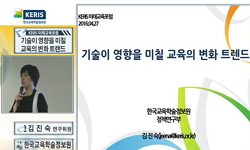This study, based on the premise that community mental health programs may have a significant effect on the rehabilitation and social integration of the mentally ill, attempts to investigate the effect of involvement in those programs and their enviro...
http://chineseinput.net/에서 pinyin(병음)방식으로 중국어를 변환할 수 있습니다.
변환된 중국어를 복사하여 사용하시면 됩니다.
- 中文 을 입력하시려면 zhongwen을 입력하시고 space를누르시면됩니다.
- 北京 을 입력하시려면 beijing을 입력하시고 space를 누르시면 됩니다.
https://www.riss.kr/link?id=T10304905
- 저자
-
발행사항
진주 : 경상대학교, 2005
- 학위논문사항
-
발행연도
2005
-
작성언어
한국어
-
주제어
지역사회정신보건프로그램 ; 정신장애인 ; 사회통합 ; 영향
-
발행국(도시)
경상남도
-
기타서명
(The)Effects of community mental health programs on the social integration of the mentally ill
-
형태사항
vii, 84 p. : 삽도 ; 26 cm.
- 소장기관
-
0
상세조회 -
0
다운로드
부가정보
다국어 초록 (Multilingual Abstract)
This study, based on the premise that community mental health programs may have a significant effect on the rehabilitation and social integration of the mentally ill, attempts to investigate the effect of involvement in those programs and their environmental factors on the social adjustment and life satisfaction of the mentally ill. Involvement in the programs is measured by subjects' level of participation in cognitive functions improvement program, social skills training and occupational rehabilitation programs. Program environment is assessed by program atmosphere, and social relations with other members and with therapists in the programs. Respondents for the survey are 112 people with mentally ill who are enrolled in the community mental health programs and who participate in rehabilitation programs.
The results of this study are as follows:
First, the number of sessions for each program is three times or less per week. Of the three programs, the participation in occupational rehabilitation programs is the highest.
Second, based on socio-demographic and disorder characteristics, economic level has significant difference with the life satisfaction and mental symptom appears to have a negative correlation with the degree of social adjustment and life satisfaction.
Third, even though involvement in the three above-mentioned programs on the social adjustment doesn't show the significant effects, only the social skills training programs has a relatively significant effect; the more participation in social skill training program is, the higher social adjustment has. Using multiful regression, program involvement affects significantly on the life satisfaction by 39.7% of explanatory power. The most powerful influenced factor on life satisfaction is the participation in cognitive functions improvement programs.
Forth, using multiple regression, programs' environmental factors affect significantly on social adjustment by 45.1% of explanatory power. The most powerful influenced factors on social adjustment are program atmosphere and relation with therapists. Also, programs' environmental factors affect significantly on life satisfaction by 51.5% of explanatory power. The most powerful influenced factors on life satisfaction are program atmosphere, relation among members and relation with the therapists.
These results suggest the following theoretical, clinical, and policy-making implications.
In theoretical terms, first of all, this study focuses on the importance of factors such as human relationship and atmosphere experienced by investigating both the involvement level in programs and the program environments. Second, this study, different from other study, is meaningful in that it investigates the programs in more details in terms of cognitive and social functions. The result shows that cognitive functions improvement programs have a significant effect on improvement in cognitive functions, and social functions improvement programs on improvement in social functions. This suggests that the development and implementation of those programs should be more specific to various damaged functions of the mentally ill so that their different goals of rehabilitation will be set and achieved effectively.
There are also some implications in terms of clinical aspects. First, programs should be developed in a way that their purposes and goals can be reflected effectively for different damaged functions of the mentally ill. Second, program atmosphere that can assure productive interpersonal relations should be more effective than mere participation in many programs in that improved atmosphere can facilitate social adjustment and resocialization. This requires that programs should be fine-tuned to make the mentally ill experienced various human relations among others.
There are implications for policy-making. First, greater financial and legal support should be secured to provide opportunities for the mentally ill to earn a realistic income. To do this, such considerations as mandatory employment quota system, disability allowances, and so on should be given for the mentally ill. Second, the implementation of CQI(Continuous quality improvement) should be considered for general rehabilitation programs for the mentally ill.
목차 (Table of Contents)
- 목차
- Abstract = ⅳ
- Ⅰ. 서론 = 1
- 1. 문제제기 = 1
- Ⅱ. 이론적 배경 = 5
- 목차
- Abstract = ⅳ
- Ⅰ. 서론 = 1
- 1. 문제제기 = 1
- Ⅱ. 이론적 배경 = 5
- 1. 지역사회정신보건과 지역사회정신보건센터 = 5
- 2. 지역사회정신보건프로그램 = 10
- 1) 인지기능향상프로그램 = 11
- 2) 사회기능향상프로그램 = 13
- 3. 지역사회정신보건 프로그램에 관한 선행연구 = 16
- 4. 정신장애인의 사회통합 = 20
- 1) 사회적응 = 21
- 2) 삶의 만족 = 23
- Ⅲ. 연구모형 및 가설 = 26
- 1. 연구모형 = 26
- 2. 연구질문 및 연구가설 = 27
- Ⅳ. 연구방법 = 29
- 1. 조사대상 = 29
- 2. 측정도구 = 32
- 3. 자료분석 방법 = 35
- Ⅴ. 연구결과 분석 = 37
- 1. 지역사회정신보건센터 프로그램 현황 = 37
- 2. 인구학적 및 장애 특성에 따른 사회통합정도 = 42
- 3. 가설검증 = 44
- Ⅵ. 결론 및 제언 = 51
- 1. 연구결과 = 51
- 2. 실천적 함의 = 55
- 3. 연구의 한계 및 제언 = 58
- 참고문헌 = 59
- 부록 = 67













